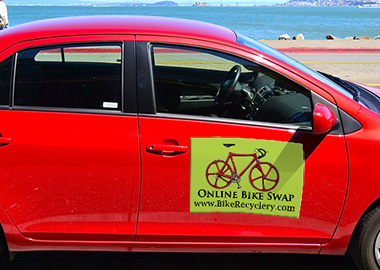
What did Stephen King, Cameron Crowe, Hunter S. Thompson and Willie Nelson once have in common? The answer is not talent or ambition, though they all had both in spades. It is their beginning as freelancers. At one time or another, each of these famous professionals pitched articles, submitted stories, or penned ghostwritten songs while working tirelessly to get ahead.
In today’s online environment, freelancers have even more opportunity for success.
In the last decade, freelancers and other self-employed professionals have become increasingly more common as businesses and corporations elect to cut costs by outsourcing advertising, marketing, creative and programming as well as other aspects of their operations. According to first quarter data from online freelance portal Elance, businesses posted 300,000 contract jobs in the first three months of this year alone—generating a whopping $60,000,000 in earnings.That success can be yours too.
While some measure of talent in your chosen field is essential if you want to make it as a freelance professional, marketing, organization and business sense are equally important. Consider these five things every freelancer needs to maximize his or her opportunities.
Every freelancer needs business cards—whether you’re conducting business online or off. Though pint-sized and supremely affordable, a well-designed card can make a big impression. At minimum, it should include your logo, name, company name, phone number, email and website in a readable typeface printed on durable stock that can stand up to repeated handling.
Regardless of your industry, you’ll also find professional, branded brochures, flyers and promotional postcards extremely useful in your freelance marketing efforts. Print marketing is more affordable than ever and has a proven track record of success.


Unlike most 9-to-5 jobs, where your geographic area and willingness to commute limits your employment choices, freelancing opens a literal world of opportunity. However, you’re not going to get a chance to pitch your services to potential clients in Australia, England, Japan or even the next state over if you’re not where they can find you—and that means online.
Keep in mind, an attractive, informative and functional freelance website doesn’t have to be complex. In addition to your portfolio of work samples, include at least a brief biography with a photo, description of your services and contact information.
But if you want to take it to the next level and really rock your website, this resource has some great advice and pointers.
It’s not uncommon in the freelance world to secure work, complete work and accept payment for that work without ever meeting your client face-to-face. However, in order to do so effectively, you must be able to build trust from the get go. Email hosted on your own domain is one of the simplest ways to do so. Just think about it. If you were a business owner looking for a writer, would you be more likely to hire the person who sends you a quote from crazycatlady25@gmail.com or writer@superlativemarketing.com?
Overnight Prints decided to research this topic firsthand. We spoke with a number of busy successful freelancers about “must-haves”. In this video, Shaun Pfeifer of ShaunPfeiferphotos and Gavin Garringer of KB Warriors told us what they absolutely cannot live without as successful freelancers:
>Completing a freelance job without a contract is like walking a tightrope over a lake of fire—it’s only a matter of time until you get burned. Rather than take the risk, create a basic contract that you can customize for any client situation and you’ll protect yourself from nonpayment, changes in scope, client delays and copyright infringement. If you’re unsure where to begin, Googling “freelance contract” should return a number of templates.
If you find clients balk at the word “contract,” try referring to it as a “project agreement” or “project description.” The terminology isn’t important—waiting for a signature before you begin the work is.


If you’ve been freelancing for any amount of time, you know that following up on unpaid invoices is never fun. However, you can greatly increase your chances of getting paid—and paid on time for that matter—if you make it as convenient as possible for your clients. This means accepting a variety of payment types, from bank checks to PayPal transfers and major credit cards. You’ll pay a small fee if your client choses virtual or plastic, but it is tax deductible.
Mason Hipp, author of the books The Ultimate Freelancer and The Unlimited Freelancer, once wrote, “Freelancing is tough. It can be very difficult, in fact. It can wear people down, making them lose sight of what they used to love because they have to do everything else just to get by.” While his statement is certainly true, if you have talent, ambition and the five other things every freelancer needs, you’ll be well on your way to success.
Courtney’s Action Items
By:Courtney Knapp
images courtesy of Andrea Casale & La TrasteriaSign Up For Overnight Prints Newsletter: